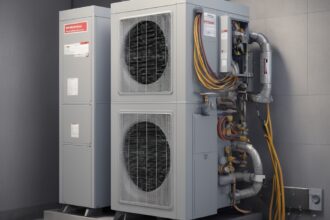One such renewable and environmentally responsible option is biomass briquettes. These compact blocks, made from agricultural and forestry waste, offer a clean and efficient way to generate heat—benefiting both the environment and the economy.
What Are Biomass Briquettes?
Biomass briquettes are a form of renewable energy made by compressing organic waste materials such as sawdust, rice husks, bagasse, groundnut shells, and other agro-industrial residues. These materials, otherwise considered waste, are transformed into high-density fuel blocks. The production process involves minimal energy use and emits significantly less carbon compared to fossil fuels, making it an ideal option for sustainable heating.
Environmental Benefits
One of the most compelling reasons to switch to biomass briquettes is their low environmental impact. Unlike coal or petroleum-based fuels, briquettes are carbon-neutral. The carbon dioxide released during their combustion is offset by the CO₂ absorbed by the plants during their growth cycle. This balance makes them a highly sustainable option for heating applications in homes, industries, and institutions.
Additionally, biomass briquettes help reduce deforestation by replacing traditional wood fuel. By utilizing agricultural waste, briquettes also minimize the burden on landfills and reduce harmful methane emissions that result from decaying biomass in open dumps.
Economic Advantages
Apart from their environmental benefits, biomass briquettes offer significant cost savings. They have a high calorific value and burn longer than firewood or charcoal. This efficiency translates to reduced fuel consumption and lower heating costs in the long term. For industries that require large-scale heating, such as brick kilns, boilers, or food processing units, switching to briquettes can lead to substantial energy cost reductions.
Moreover, briquette manufacturing opens doors for rural entrepreneurship. Small and medium-sized enterprises can engage in briquette production, creating local jobs and encouraging rural economic development.
Versatility and Convenience
Biomass briquettes are incredibly versatile. They can be used in boilers, stoves, ovens, and industrial furnaces. Their uniform size and shape make them easy to store, transport, and handle—offering a clean, mess-free alternative to traditional fuels like wood logs or loose biomass.
For residential users, briquettes are a clean-burning option that produces less smoke and ash, resulting in a healthier indoor environment. Industries benefit from their consistent energy output, ensuring smoother operations and less maintenance downtime.
Role in Sustainable Development
Switching to biomass briquettes aligns perfectly with global efforts to combat climate change and achieve sustainable development goals. Countries seeking to reduce their carbon footprint and transition to green energy can benefit from promoting briquette use on a larger scale. It also empowers communities by creating value from waste, improving waste management practices, and reducing reliance on non-renewable energy sources.
Conclusion
The shift toward eco-friendly heating solutions is essential for a cleaner, greener future. Biomass briquettes offer an excellent alternative to traditional fuels by being renewable, cost-effective, and environmentally safe. Whether you’re a homeowner looking for a cleaner heating source or an industrial user seeking to cut fuel costs and emissions, biomass briquettes provide a reliable and sustainable energy solution.
By choosing biomass briquettes, we not only reduce our carbon footprint but also contribute to a circular economy that values waste as a resource. It’s time to embrace this change and take a step toward responsible energy consumption.




